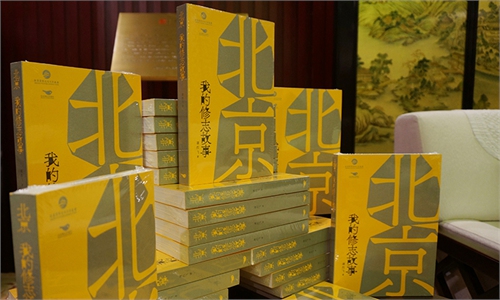Tons of messages of mouring poured out from China after news hit that sinologist Jonathan D. Spence died at age 85

Jonathan D.Spence Photo:Sina Weibo
Jonathan D. Spence, a British-born sinologist who is considered one of the world's greatest Western scholars on Chinese history, has passed away at the age 85. The news about his passing quickly began trending on Sina Weibo, leading to fans posting messages of mourning.The erudite Yale University history professor spent almost his entire life studying the relations between China and the West with a particular interest in the Qing Dynasty (1644-1911). He wrote 14 books about China in total.
His oeuvre about China include the popular The Death of Woman Wang and the Emperor of China: Self-Portrait of K'ang-Hsi, which are still highly regarded by Chinese readers, with an average score of above 7.5/10 on popular Chinese media review platform Douban.
He first traveled to Chinese Mainland in 1974, two years after US president Nixon's first visit to China. The historian was charmed by the developments taking place at the time and this became one of his major inspirations behind the iconic book The Search for Modern China (1990).
The iconic book shows the unique charm of Spence's literary historical writing. Both he and his works inspired many overseas "China readers" including big names such as Kenneth Pomeranz and John Delury.
Spence's Chinese name Shi Jingqian originated from the author's storytelling character. The name means "aspire to Jingqian," with Jingqian referring to Sima Qian, a Western Han Dynasty (206BC-AD8) scholar who is often considered China's greatest historian.
Called the next key sinologist after John King Fairbank, the guru of modern Chinese Studies in the US, Spence's research was unique for his true-experience-based "storytelling" writing style that engaged not only academia but also history fans.
"We had a reading corner at school to read his writings. I never got bored with his work. I sometimes feel other historical texts are too serious. RIP," posted a netizen on China's Twitter-like Sina Weibo.
The news of his death has earned over 34 million views on Sina Weibo. Chinese historian Wang Yuanchong once told media that Spence's works had successfully stimulated an interest in Chinese history among a large number of non-academic readers.
"If you want to really know something, you have to observe or experience it in person. If you claim to know something on the basis of hearsay, or happen to see it in a book, you'll be a laughingstock to those who really know," Spence wrote in his book Emperor of China: Self-Portrait of K'ang-Hsi (1988).
Spence's works gave the new generation of Chinese people a sense of their own history, allowing Western readers to see the authentic yet dynamic China without "basis of hearsay."



